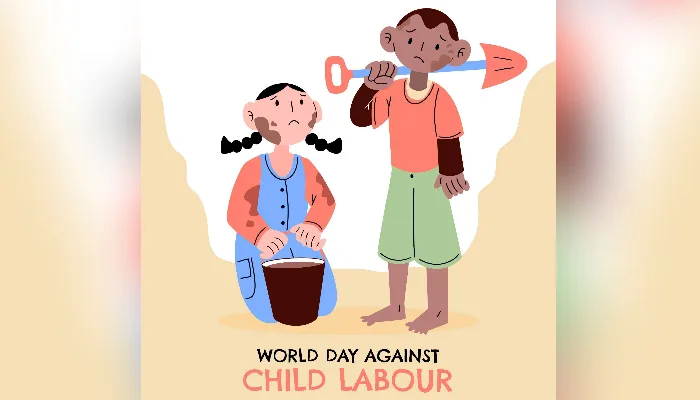
On June 12, the world—including Pakistan—observes World Day Against Child Labour, focusing on the urgent need to eliminate child labour. This year’s theme, “Progress is clear, but there’s more to do: let’s speed up efforts!”, calls for renewed momentum in global efforts to end this exploitative practice.
Governments, civil society, trade unions, and international organizations have come together today to raise awareness and demand action. The day serves as a global platform to highlight the plight of children forced into labour and to promote policies that protect them. The International Labour Organization (ILO) and UNICEF stress that ending child labour requires a system-wide approach that includes stronger social protection, improved access to education, and decent job opportunities for parents.
Read: Pakistan Braces for Intense Heatwave: PMD Countrywide Alert
138 Million Children Still Trapped in Labour Worldwide
New figures released jointly by the ILO and UNICEF on Wednesday paint a troubling picture. According to their report, “Child Labour: Global Estimates 2024, Trends and the Road Forward,” approximately 138 million children were engaged in child labour globally this year. Out of these, nearly 54 million children were involved in hazardous work—jobs that threaten their physical and mental well-being.
The report, however, offers a glimmer of hope. Since 2020, the number of children in child labour has declined by over 22 million, reversing the previous trend between 2016 and 2020, when child labour had been on the rise. Despite this progress, experts warn that the world remains far from its target of eliminating all forms of child labour by 2025, as set by the United Nations Sustainable Development Goals (SDGs).
“While the numbers have dropped slightly, the pace is too slow,” said an ILO spokesperson. “Millions of children are still working under harmful conditions, and that is unacceptable.”
Read: PIA Expands MRO Services with Strategic Deal Signed with Air Karachi
Pakistan Faces Rising Child Labour Amid Weak Enforcement
In Pakistan, child labour remains a deeply rooted issue. Experts estimate that millions of children are still working in agriculture, factories, homes, and markets. In Punjab alone, the child labour rate stands at 14%, with thousands involved in dangerous jobs such as brick kilns, carpet weaving, and street vending.
While the government has announced plans and passed legislation to curb child labour, enforcement remains weak, and support systems are often lacking. “Announcing policies is not enough,” said a local child rights activist. “Authorities must take firm steps to ensure that these laws are implemented effectively.”
In many cases, poverty forces families to send their children to work instead of school. Without access to quality education and financial support, these families continue to rely on child labour for survival. Experts urge the government to strengthen its social welfare programs and ensure that children have access to free, quality education.
Follow us on Facebook and Instagram
















